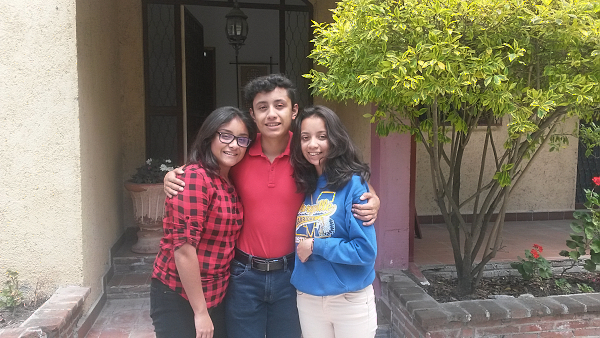
Aug 7, 2018 | Focolare Worldwide
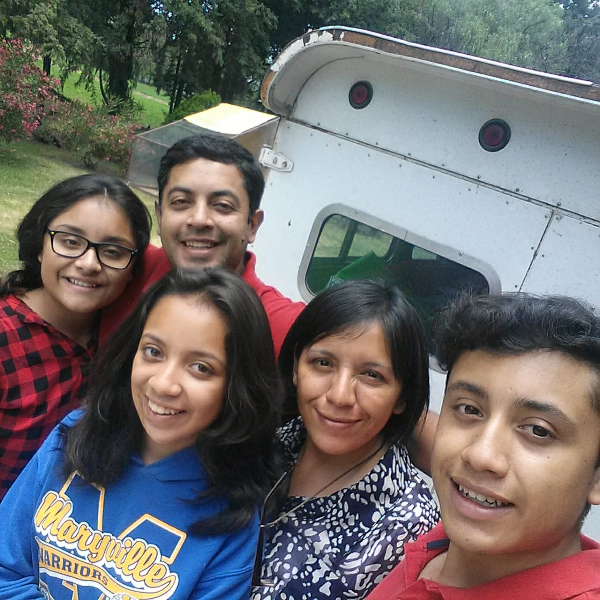 Together with their three children, four years ago Edgar and Maquency moved to “El Diamante”, the Focolare’s little city 50 kilometers from Puebla, and close to 170 kilometers from Mexico City. Although only a couple of dozen inhabitants, each year a few thousand visitors come to this land, which has a culture of sharp contrasts, including modern, well-populated cities and vast surrounding areas. The little city is a true point of a diamond, the beating heart of the Focolare Movement that Chiara Lubich founded in 1990. It is a place that bears witness to how Gospel life can become enculturated if it is based on dialogue and mutual exchange between diverse cultures. “We decided to move to the little city with our three children to contribute in a practical way. We landed here after responding to a real and true call from God to build the city togethe rwith others,” says Edgar. “For us, making ourselves available was a way to pay back all the love that has been given us ever since we heard about the ideal of unity,” Maquency adds. “Recently,” says Edgar, “we were trying to make ends meet, which was difficult without having a steady job. During our first year in the little city, I had different carpentry and plumbing jobs, and then I worked as a house painter to support our family. After that, discussing it with Maquency and the other focolarini, we decided I would go and search for other income in my field, engineering. After some time, I found a job in a city 90 kilometers from the little city. The work was good, and I was happy, but there was always that feeling that I was far away from home, my family and the little city.” Then another opportunity arose in a nearby city. “Talking about ita t home, we decided to accept the job. At first it seemed a good option, but after a few months of working at that business, I realised that things were not quite what they seemed and gave my notice. “I then went back to the little city and dedicated myself to silk-screen printing. It felt like I had gone backwards. “Instead just after that, an unexpected job offer came up as a consultant for a project. I was immediately hired, and I really enjoyed the work and the pay was good. Finally we were able to have financial stability in our family.”
Together with their three children, four years ago Edgar and Maquency moved to “El Diamante”, the Focolare’s little city 50 kilometers from Puebla, and close to 170 kilometers from Mexico City. Although only a couple of dozen inhabitants, each year a few thousand visitors come to this land, which has a culture of sharp contrasts, including modern, well-populated cities and vast surrounding areas. The little city is a true point of a diamond, the beating heart of the Focolare Movement that Chiara Lubich founded in 1990. It is a place that bears witness to how Gospel life can become enculturated if it is based on dialogue and mutual exchange between diverse cultures. “We decided to move to the little city with our three children to contribute in a practical way. We landed here after responding to a real and true call from God to build the city togethe rwith others,” says Edgar. “For us, making ourselves available was a way to pay back all the love that has been given us ever since we heard about the ideal of unity,” Maquency adds. “Recently,” says Edgar, “we were trying to make ends meet, which was difficult without having a steady job. During our first year in the little city, I had different carpentry and plumbing jobs, and then I worked as a house painter to support our family. After that, discussing it with Maquency and the other focolarini, we decided I would go and search for other income in my field, engineering. After some time, I found a job in a city 90 kilometers from the little city. The work was good, and I was happy, but there was always that feeling that I was far away from home, my family and the little city.” Then another opportunity arose in a nearby city. “Talking about ita t home, we decided to accept the job. At first it seemed a good option, but after a few months of working at that business, I realised that things were not quite what they seemed and gave my notice. “I then went back to the little city and dedicated myself to silk-screen printing. It felt like I had gone backwards. “Instead just after that, an unexpected job offer came up as a consultant for a project. I was immediately hired, and I really enjoyed the work and the pay was good. Finally we were able to have financial stability in our family.”  When everything seemed to become normal from the financial point of view, Edgar was surprised to be asked to manage the maintenance in the little city, which was quite needed so many years after being built. “My wife and I entered into a new phase of discernment, trying to understand the right choice to make. There were moments of uncertainty and worry, especially when we thought of our children’s future.” “We remembered,” Maquency says, “our early experience that God had us live through. We felt we were being asked yet again, since when God calls, he asks to leave everything and demands an. Exclusive love. He wants us to leave our security in order to put ourselves at the service of others. Yet he also offers us everything, as the Gospel says: ‘No one who has left home or brothers or sisters or mother or father or children or fields for my sake and for the Gospel will fail to receive a hundredfold in the present age.’” “And so we decided that I’d put myself at the service of the little city. When I discussed it with my manager at the business, he exclaimed, ‘If only there were many people like you!’ and he proposed that I work for reduced hours, which matched my needs. I experienced how Providence intervened firsthand and how true the Gospel is.”
When everything seemed to become normal from the financial point of view, Edgar was surprised to be asked to manage the maintenance in the little city, which was quite needed so many years after being built. “My wife and I entered into a new phase of discernment, trying to understand the right choice to make. There were moments of uncertainty and worry, especially when we thought of our children’s future.” “We remembered,” Maquency says, “our early experience that God had us live through. We felt we were being asked yet again, since when God calls, he asks to leave everything and demands an. Exclusive love. He wants us to leave our security in order to put ourselves at the service of others. Yet he also offers us everything, as the Gospel says: ‘No one who has left home or brothers or sisters or mother or father or children or fields for my sake and for the Gospel will fail to receive a hundredfold in the present age.’” “And so we decided that I’d put myself at the service of the little city. When I discussed it with my manager at the business, he exclaimed, ‘If only there were many people like you!’ and he proposed that I work for reduced hours, which matched my needs. I experienced how Providence intervened firsthand and how true the Gospel is.”
Aug 6, 2018 | Focolare Worldwide
Aug 6, 2018 | Focolare Worldwide
73 years ago, on 6 August 1945, the horror of Hiroshima, and Nagasaki, three days later, came in the form of an immense flash of light which brought immediate death to hundreds of thousands people, almost all civilians, and many more in the following years, due to the radiations. From those two explosions, not only Japan, but the entire humanity was devastated, and consigned to the world the awareness that nothing would ever be the same. “Never again” is not only a moral warning, but also an absolute need, if we want our planet to have a future of peace and create a world in which the sun is the only symbol of life.
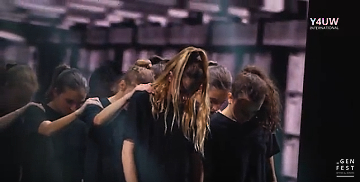
Aug 5, 2018 | Focolare Worldwide
 “These words are precious to me, since they are written by Chiara Lubich: ‘I can imagine that all of you . . . feel the full weight of the violence and terrorism that even spreads across entire nations. Young people not much older than you believe that they can change society by kidnapping, killing and committing every sort of criminal act. Without a doubt they never found more positive ideals to live for and let themselves wander onto very dangerous road. Many people are frightened and unable to live at peace. What can we do? What contribution could we give?’ These words perfectly sum up what I’m going through right now. I’d like to share with you what I’m living and how abandoned I feel in this moment, perhaps a bit as Jesus felt when he was abandoned on the cross. This sense of abandonment is something I felt in all four of the detention centers where I stayed and where I found myself among teenagers who were for the most part younger than me. At first these kids frightened me. They were against me and even wanted to kill me. But I tried to get close to them and realized that what they were missing was understanding, a lack of opportunity and, therefore, a lack of love. I’m not trying to justify them, but they also need love and help, only that they looked for it by drawing attention to themselves in the wrong way. But it was the only way they knew. My parents try to live for a united world and, ever since I was a small, I did too. It’s easier when you belong to a community where everyone tries to live in that way. Whereas, for people who are afraid to let themselves love, it’s harder, especially when they see that this love doesn’t correspond to what they see around them, such as thieves and assassins. Nevertheless, it’s only love that cuts through all the limitations and this is the more precious truth, despite of everything I’m living in here. Now these guys come into my cell and ask me for advice or help, especially when they’re going through ugly moments. Some of them even want to know more about Youth for a United World (Y4UW) which I belong to in spite of my situation. Lots of them ask me how I am, if I need anything; one even calls me brother. What I’m living in prison can turn into an invasion of love that little by little spreads where violence reigns, just like gentle rain that penetrates deeper and deeper into the soil…”.
“These words are precious to me, since they are written by Chiara Lubich: ‘I can imagine that all of you . . . feel the full weight of the violence and terrorism that even spreads across entire nations. Young people not much older than you believe that they can change society by kidnapping, killing and committing every sort of criminal act. Without a doubt they never found more positive ideals to live for and let themselves wander onto very dangerous road. Many people are frightened and unable to live at peace. What can we do? What contribution could we give?’ These words perfectly sum up what I’m going through right now. I’d like to share with you what I’m living and how abandoned I feel in this moment, perhaps a bit as Jesus felt when he was abandoned on the cross. This sense of abandonment is something I felt in all four of the detention centers where I stayed and where I found myself among teenagers who were for the most part younger than me. At first these kids frightened me. They were against me and even wanted to kill me. But I tried to get close to them and realized that what they were missing was understanding, a lack of opportunity and, therefore, a lack of love. I’m not trying to justify them, but they also need love and help, only that they looked for it by drawing attention to themselves in the wrong way. But it was the only way they knew. My parents try to live for a united world and, ever since I was a small, I did too. It’s easier when you belong to a community where everyone tries to live in that way. Whereas, for people who are afraid to let themselves love, it’s harder, especially when they see that this love doesn’t correspond to what they see around them, such as thieves and assassins. Nevertheless, it’s only love that cuts through all the limitations and this is the more precious truth, despite of everything I’m living in here. Now these guys come into my cell and ask me for advice or help, especially when they’re going through ugly moments. Some of them even want to know more about Youth for a United World (Y4UW) which I belong to in spite of my situation. Lots of them ask me how I am, if I need anything; one even calls me brother. What I’m living in prison can turn into an invasion of love that little by little spreads where violence reigns, just like gentle rain that penetrates deeper and deeper into the soil…”.
https://youtu.be/6VGaH7_g-H0
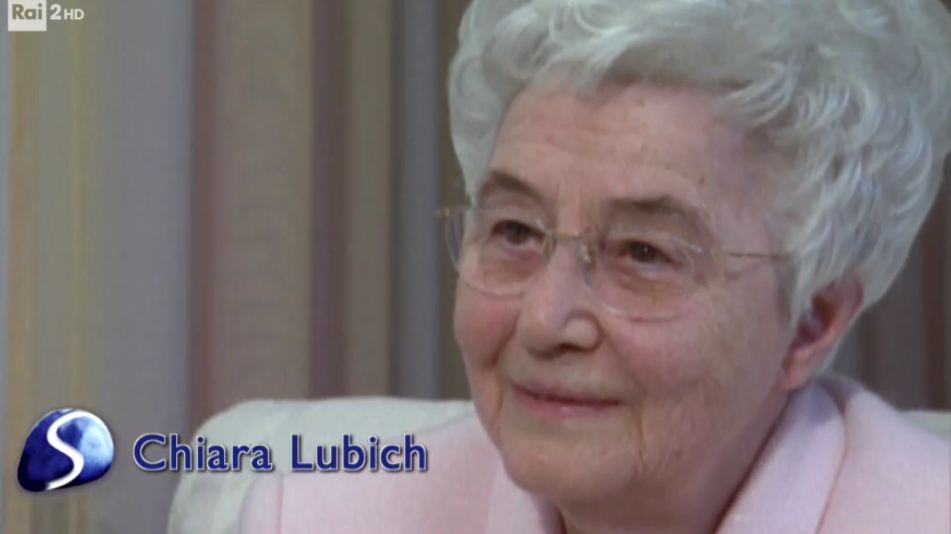
Aug 3, 2018 | Non categorizzato
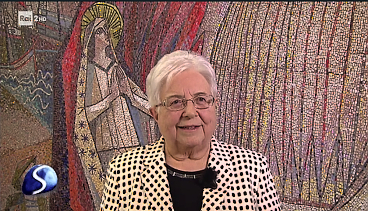
Maria Voce
 The message that Chiara left us is that of being open to everyone, not looking at anyone as if they were different from you, but seeing everyone as your brother or sister. This “everyone” means people from your own country and those from other countries, Christians and non-Christians, believers and non-believers, those who understand and accept what I am saying and the person who contradicts me, because even someone who contradicts me is my brother or sister. This is what Chiara taught us and what she did herself first of all, having a heart that was able to welcome each person as if they were the only person in the world, whether they were a head of State, a child or a relative; a Church leader or a leader of another religion. Chiara had the same love for all. I believe this is the most important message for today when there is a growth in tension and violence, selfishness and mutual indifference. We can build a world guided by the Gospel, where all people are brothers and sisters and truly live as one family.
The message that Chiara left us is that of being open to everyone, not looking at anyone as if they were different from you, but seeing everyone as your brother or sister. This “everyone” means people from your own country and those from other countries, Christians and non-Christians, believers and non-believers, those who understand and accept what I am saying and the person who contradicts me, because even someone who contradicts me is my brother or sister. This is what Chiara taught us and what she did herself first of all, having a heart that was able to welcome each person as if they were the only person in the world, whether they were a head of State, a child or a relative; a Church leader or a leader of another religion. Chiara had the same love for all. I believe this is the most important message for today when there is a growth in tension and violence, selfishness and mutual indifference. We can build a world guided by the Gospel, where all people are brothers and sisters and truly live as one family.
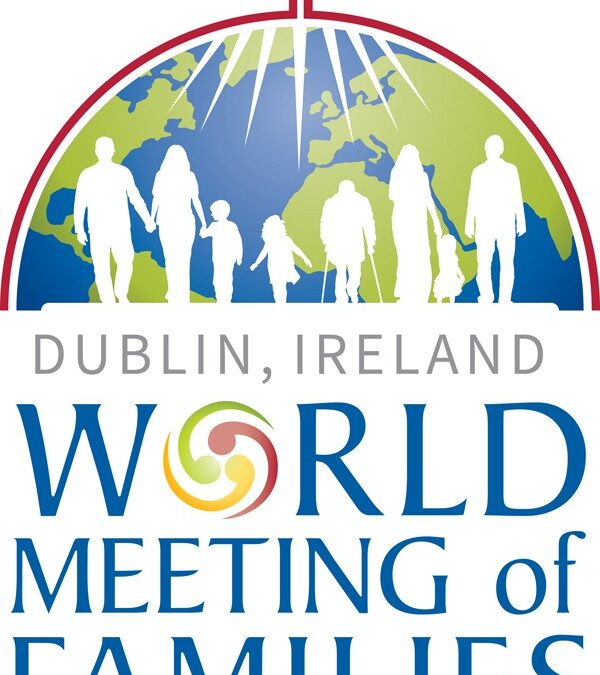
Aug 2, 2018 | Focolare Worldwide
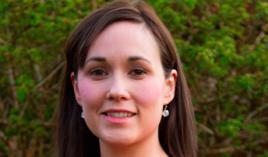
Brenda Drumm
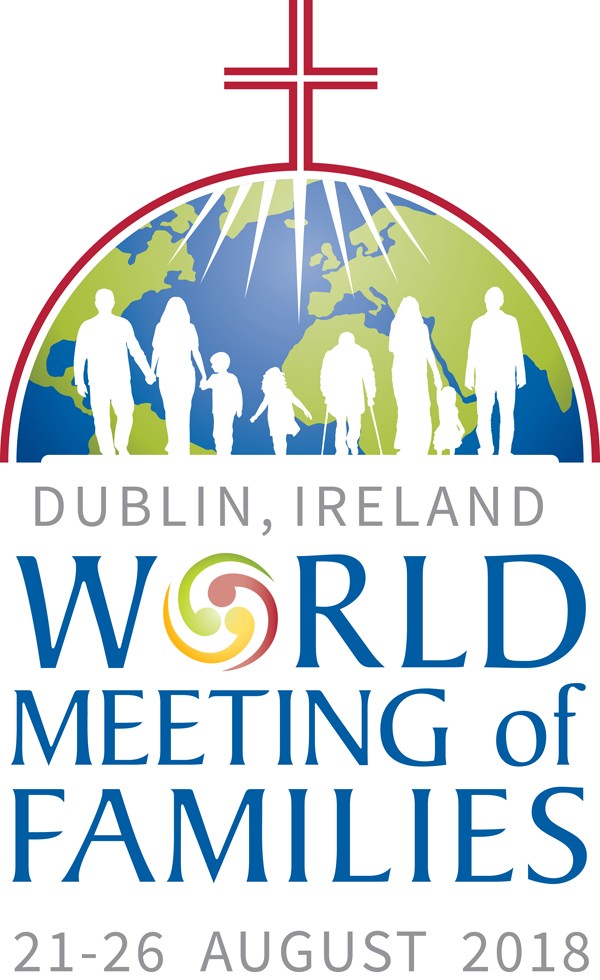 Repeated every three years, the event, which is promoted by the Holy See’s Secretariat for the Laity, the Family and Life, brings together families from around the world to celebrate, pray and reflect together on the importance of marriage as the foundation of personal life, of society and of the Church. The meeting will continue after the official inauguration on 21 August, with a three-day conference in which there will be diversified programs for young people and adults, with entertainment for children, all culminating in sharing experiences of faith in the presence of the Pope. Most of the events will take place in Dublin while other related events will be held in other parts of Ireland. The numbers are flattering, says Drumm: “People’s response has been overwhelming. All the tickets for the scheduled events have already been booked for a long time: 37,000 for the pastoral congress, 77,000 for the Festival of families, 45,000 for the visit to Our Lady of Knock, 500,000 for the closing Mass. Numbers from which interesting data can be derived: families from 116 countries will arrive in Ireland, for a total of about 15,000 international participants; thousands of families will converge on Dublin from all over the country. Approximately 6,000 young people under the age of 18, and 10,000 volunteers committed to ensure the success of the Meeting. But behind the figures are the people: families from all over the world who will gather to celebrate their joys and to discuss some of the many challenges they are facing faced in a rapidly changing world.” And she continues: “Pope Francis is able to grasp perfectly the reality of family life today, with the difficulties of every day. He understands that as parents we do our best for each other each day, and for our children. He also understands that families are not perfect.” What is the family for Pope Francis? Drumm recalls: “The nearby hospital, the first school for the children, the best home for the elderly.” And if “at times dishes can fly,” the Pope reminds us “how happier our family life would be if we only understood the importance of the words ‘please,’ ‘thank you,’ and ‘excuse me.’ The Pope remains passionately convinced that the family will continue to be ‘good news’ for the world. He believes that in the often complex and disordinate life of the modern family, the grace and the love of Jesus Christ are alive in a galaxy of daily acts of kindness, tenderness, generosity and fidelity often lived out heroically amidst immense human frailty and overwhelming social challenges. In a society that is easily inclinded toward violence, the family continues to hold us to hold our lives together, along with the world itself.”
Repeated every three years, the event, which is promoted by the Holy See’s Secretariat for the Laity, the Family and Life, brings together families from around the world to celebrate, pray and reflect together on the importance of marriage as the foundation of personal life, of society and of the Church. The meeting will continue after the official inauguration on 21 August, with a three-day conference in which there will be diversified programs for young people and adults, with entertainment for children, all culminating in sharing experiences of faith in the presence of the Pope. Most of the events will take place in Dublin while other related events will be held in other parts of Ireland. The numbers are flattering, says Drumm: “People’s response has been overwhelming. All the tickets for the scheduled events have already been booked for a long time: 37,000 for the pastoral congress, 77,000 for the Festival of families, 45,000 for the visit to Our Lady of Knock, 500,000 for the closing Mass. Numbers from which interesting data can be derived: families from 116 countries will arrive in Ireland, for a total of about 15,000 international participants; thousands of families will converge on Dublin from all over the country. Approximately 6,000 young people under the age of 18, and 10,000 volunteers committed to ensure the success of the Meeting. But behind the figures are the people: families from all over the world who will gather to celebrate their joys and to discuss some of the many challenges they are facing faced in a rapidly changing world.” And she continues: “Pope Francis is able to grasp perfectly the reality of family life today, with the difficulties of every day. He understands that as parents we do our best for each other each day, and for our children. He also understands that families are not perfect.” What is the family for Pope Francis? Drumm recalls: “The nearby hospital, the first school for the children, the best home for the elderly.” And if “at times dishes can fly,” the Pope reminds us “how happier our family life would be if we only understood the importance of the words ‘please,’ ‘thank you,’ and ‘excuse me.’ The Pope remains passionately convinced that the family will continue to be ‘good news’ for the world. He believes that in the often complex and disordinate life of the modern family, the grace and the love of Jesus Christ are alive in a galaxy of daily acts of kindness, tenderness, generosity and fidelity often lived out heroically amidst immense human frailty and overwhelming social challenges. In a society that is easily inclinded toward violence, the family continues to hold us to hold our lives together, along with the world itself.”
Aug 1, 2018 | Non categorizzato
The littlest one A neighbour, who was in a bit of pain because her son wasn’t profiting much from his schooling, couldn’t find a way to help him with his schoolwork. She left for work every morning at 5:30 and returned in the evening. So, I suggested that she send him over to me and he could study with my son. It wasn’t easy, because I also had to help my older son and take care of the smaller one, who had just turned one. But I was glad to be of help to someone. M. M. (Venezuela) An arms factory Finally I had found a job at factory equipped with a sophisticated security system. I couldn’t believe it and thought our problems were over. After a while I became aware of a secret that had been kept from me: the factory built weapons. They asked me if I had a problem with that, and I nonchalantly answered no. It wasn’t up to me to solve that problem, plus I would have been out on the street again. Talking it over with my wife and some friends, I realized what choice I needed to make. On my way home, unemployed again, I couldn’t stop crying, but there was an unusual joy deep inide my soul. I had put my Christian identity before everything. I would never have imagined that just a short time later I would be offered another very gratifying job and, most importantly, in line with my conscience. D. R. (Italy) A different mood Our son had returned from the kind of vacation we parents just couldn’t approve of. We decided to talk to him after supper, firmly decided to tell him that either he changed his lifestyle, or he’d have to move out of the house. All day, I kept asking myself if that would really be good for him. I also spoke about it with some of my girlfriends and my doubts increased. Perhaps, I thought, we have to be able to wait and put more love into our relationship as Jesus tells us to do. After talking about it with my husband, we had a change of mood, no longer imposing our point of view, but having a more listening mood in order to hear him. We sat together for a long time and, even though he didn’t share our ideas he let us share his struggles. We thanked God for having guided us along. C. W. (Austria) A suspicious character We don’t know anyone in the town we moved to for work. In fact, my colleagues tell me not to trust anyone there, because the people there are not recommendable. My husband, with his outgoing personality, immediately began to chat with several people, especially one man in particular whom he met every day at the magazine stand. My colleagues warned me again, telling me that man, in particular, had serious problems with the law. A few days later our daughter wasn’t feeling well and her condition worsened. I felt at a loss. Then I remembered that my husband had received a local map from the man he had met at the magazine stand. It showed the location of all the local services, including hospitals, doctors and pharmacies. Suddenly, it all became easy, thanks to the map from that suspicious character. It was a powerful lesson for me: Love of neighbour must come before any and all judgements.” L. S. (Italy)
Jul 31, 2018 | Non categorizzato
Jul 31, 2018 | Non categorizzato
According to tradition, on the night of July 1216, St. Francis asked God for forgiveness of the sins of the penitent pilgrims visiting the “Portiuncula.” On 2 August Pope Honorius III established the “Pardon of Assisi” in the Franciscan churches, an indulgence extended today to all the parish churches worldwide. On 1 August there will be the celebration of the “Opening of the Days of Indulgences” (from 12 noon of 1 August up to midnight of 2 August). It will be followed by the traditional Evening Prayer with a procession with torches. The youths of the 38th Franciscan March coming from all the regions of Italy and some foreign countries, shall cross the threshold of the “Portiuncula” after a journey on foot of more than a week, guided by the theme, “With a new name.” Lastly, the Basilica Square will be the location of five events/shows (Gloriosus Francisuc with Michele Placido, Concert of the Russian Symphonic Orchestra, On a journey with Mary, Pardon Concert of the Vatican Gendarmerie Band, and the ballet, The Two Paths).
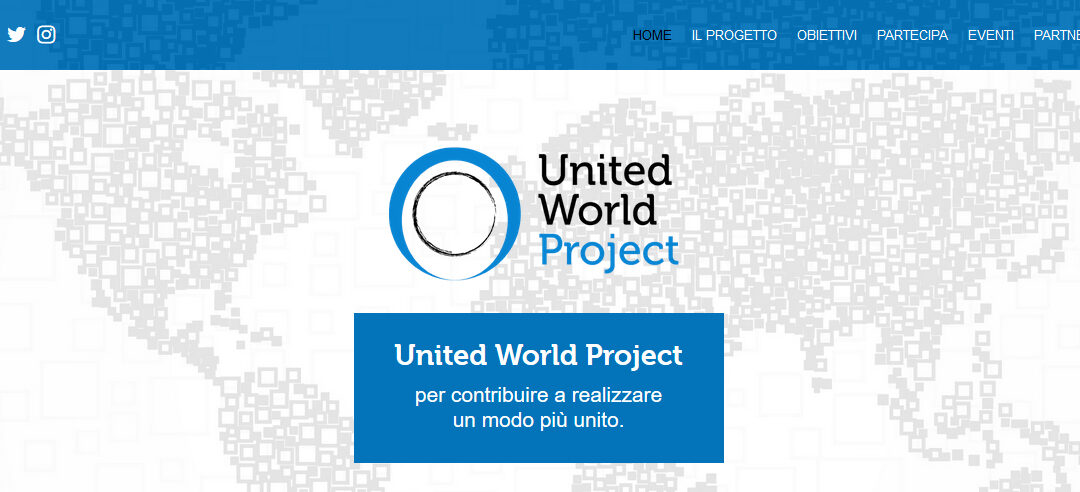
Jul 31, 2018 | Non categorizzato
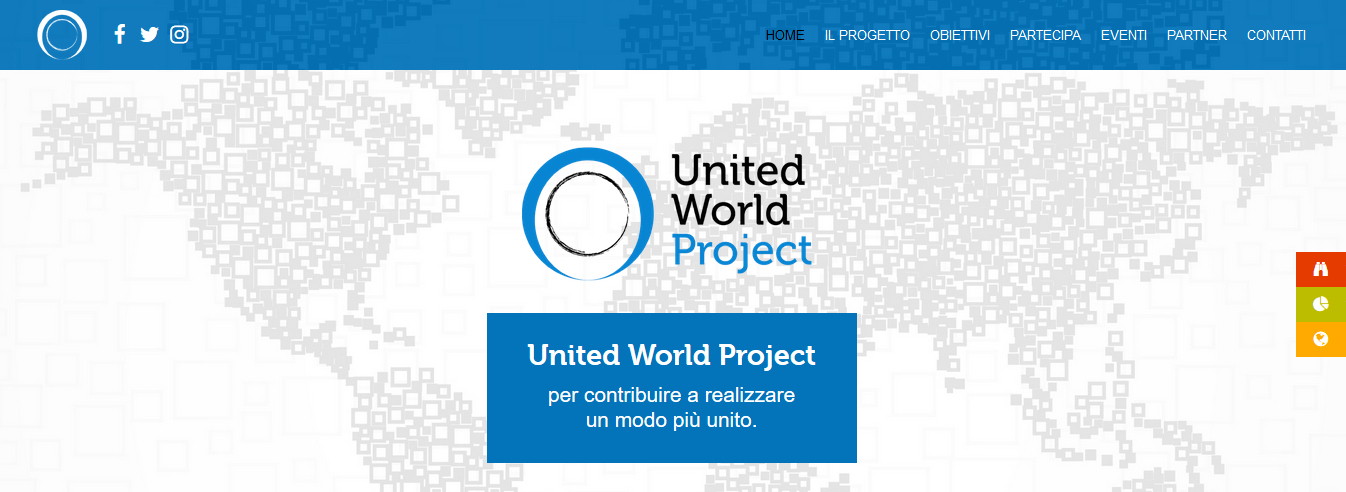 “We live in a world which has become a real village: complex and new, but a village. Humanity today lives as if it were a small group. And if it is so, it could really live, in brotherhood. But how can we make it bloom?” Chiara Lubich See the new website: www.unitedworldproject.org With new contents: Watch, Workshop, Network «UWP, promoted by New Humanity, wishes to contribute to the creation of the united world by mapping, promoting and setting on the network the personal and collective good practices, processes, big or small actions, daily or extraordinary ones that contribute to make the world a place o peace, more fraternal and united” as listed in its objectives. Enter into the United World Project network!
“We live in a world which has become a real village: complex and new, but a village. Humanity today lives as if it were a small group. And if it is so, it could really live, in brotherhood. But how can we make it bloom?” Chiara Lubich See the new website: www.unitedworldproject.org With new contents: Watch, Workshop, Network «UWP, promoted by New Humanity, wishes to contribute to the creation of the united world by mapping, promoting and setting on the network the personal and collective good practices, processes, big or small actions, daily or extraordinary ones that contribute to make the world a place o peace, more fraternal and united” as listed in its objectives. Enter into the United World Project network!

 Together with their three children, four years ago Edgar and Maquency moved to “El Diamante”, the Focolare’s little city 50 kilometers from Puebla, and close to 170 kilometers from Mexico City. Although only a couple of dozen inhabitants, each year a few thousand visitors come to this land, which has a culture of sharp contrasts, including modern, well-populated cities and vast surrounding areas. The little city is a true point of a diamond, the beating heart of the Focolare Movement that Chiara Lubich founded in 1990. It is a place that bears witness to how Gospel life can become enculturated if it is based on dialogue and mutual exchange between diverse cultures. “We decided to move to the little city with our three children to contribute in a practical way. We landed here after responding to a real and true call from God to build the city togethe rwith others,” says Edgar. “For us, making ourselves available was a way to pay back all the love that has been given us ever since we heard about the ideal of unity,” Maquency adds. “Recently,” says Edgar, “we were trying to make ends meet, which was difficult without having a steady job. During our first year in the little city, I had different carpentry and plumbing jobs, and then I worked as a house painter to support our family. After that, discussing it with Maquency and the other focolarini, we decided I would go and search for other income in my field, engineering. After some time, I found a job in a city 90 kilometers from the little city. The work was good, and I was happy, but there was always that feeling that I was far away from home, my family and the little city.” Then another opportunity arose in a nearby city. “Talking about ita t home, we decided to accept the job. At first it seemed a good option, but after a few months of working at that business, I realised that things were not quite what they seemed and gave my notice. “I then went back to the little city and dedicated myself to silk-screen printing. It felt like I had gone backwards. “Instead just after that, an unexpected job offer came up as a consultant for a project. I was immediately hired, and I really enjoyed the work and the pay was good. Finally we were able to have financial stability in our family.”
Together with their three children, four years ago Edgar and Maquency moved to “El Diamante”, the Focolare’s little city 50 kilometers from Puebla, and close to 170 kilometers from Mexico City. Although only a couple of dozen inhabitants, each year a few thousand visitors come to this land, which has a culture of sharp contrasts, including modern, well-populated cities and vast surrounding areas. The little city is a true point of a diamond, the beating heart of the Focolare Movement that Chiara Lubich founded in 1990. It is a place that bears witness to how Gospel life can become enculturated if it is based on dialogue and mutual exchange between diverse cultures. “We decided to move to the little city with our three children to contribute in a practical way. We landed here after responding to a real and true call from God to build the city togethe rwith others,” says Edgar. “For us, making ourselves available was a way to pay back all the love that has been given us ever since we heard about the ideal of unity,” Maquency adds. “Recently,” says Edgar, “we were trying to make ends meet, which was difficult without having a steady job. During our first year in the little city, I had different carpentry and plumbing jobs, and then I worked as a house painter to support our family. After that, discussing it with Maquency and the other focolarini, we decided I would go and search for other income in my field, engineering. After some time, I found a job in a city 90 kilometers from the little city. The work was good, and I was happy, but there was always that feeling that I was far away from home, my family and the little city.” Then another opportunity arose in a nearby city. “Talking about ita t home, we decided to accept the job. At first it seemed a good option, but after a few months of working at that business, I realised that things were not quite what they seemed and gave my notice. “I then went back to the little city and dedicated myself to silk-screen printing. It felt like I had gone backwards. “Instead just after that, an unexpected job offer came up as a consultant for a project. I was immediately hired, and I really enjoyed the work and the pay was good. Finally we were able to have financial stability in our family.”  When everything seemed to become normal from the financial point of view, Edgar was surprised to be asked to manage the maintenance in the little city, which was quite needed so many years after being built. “My wife and I entered into a new phase of discernment, trying to understand the right choice to make. There were moments of uncertainty and worry, especially when we thought of our children’s future.” “We remembered,” Maquency says, “our early experience that God had us live through. We felt we were being asked yet again, since when God calls, he asks to leave everything and demands an. Exclusive love. He wants us to leave our security in order to put ourselves at the service of others. Yet he also offers us everything, as the Gospel says: ‘No one who has left home or brothers or sisters or mother or father or children or fields for my sake and for the Gospel will fail to receive a hundredfold in the present age.’” “And so we decided that I’d put myself at the service of the little city. When I discussed it with my manager at the business, he exclaimed, ‘If only there were many people like you!’ and he proposed that I work for reduced hours, which matched my needs. I experienced how Providence intervened firsthand and how true the Gospel is.”
When everything seemed to become normal from the financial point of view, Edgar was surprised to be asked to manage the maintenance in the little city, which was quite needed so many years after being built. “My wife and I entered into a new phase of discernment, trying to understand the right choice to make. There were moments of uncertainty and worry, especially when we thought of our children’s future.” “We remembered,” Maquency says, “our early experience that God had us live through. We felt we were being asked yet again, since when God calls, he asks to leave everything and demands an. Exclusive love. He wants us to leave our security in order to put ourselves at the service of others. Yet he also offers us everything, as the Gospel says: ‘No one who has left home or brothers or sisters or mother or father or children or fields for my sake and for the Gospel will fail to receive a hundredfold in the present age.’” “And so we decided that I’d put myself at the service of the little city. When I discussed it with my manager at the business, he exclaimed, ‘If only there were many people like you!’ and he proposed that I work for reduced hours, which matched my needs. I experienced how Providence intervened firsthand and how true the Gospel is.”





 Repeated every three years, the event, which is promoted by the Holy See’s Secretariat for the Laity, the Family and Life, brings together families from around the world to celebrate, pray and reflect together on the importance of marriage as the foundation of personal life, of society and of the Church. The meeting will continue after the official inauguration on 21 August, with a three-day conference in which there will be diversified programs for young people and adults, with entertainment for children, all culminating in sharing experiences of faith in the presence of the Pope. Most of the events will take place in Dublin while other related events will be held in other parts of Ireland. The numbers are flattering, says Drumm: “People’s response has been overwhelming. All the tickets for the scheduled events have already been booked for a long time: 37,000 for the pastoral congress, 77,000 for the Festival of families, 45,000 for the visit to Our Lady of Knock, 500,000 for the closing Mass. Numbers from which interesting data can be derived: families from 116 countries will arrive in
Repeated every three years, the event, which is promoted by the Holy See’s Secretariat for the Laity, the Family and Life, brings together families from around the world to celebrate, pray and reflect together on the importance of marriage as the foundation of personal life, of society and of the Church. The meeting will continue after the official inauguration on 21 August, with a three-day conference in which there will be diversified programs for young people and adults, with entertainment for children, all culminating in sharing experiences of faith in the presence of the Pope. Most of the events will take place in Dublin while other related events will be held in other parts of Ireland. The numbers are flattering, says Drumm: “People’s response has been overwhelming. All the tickets for the scheduled events have already been booked for a long time: 37,000 for the pastoral congress, 77,000 for the Festival of families, 45,000 for the visit to Our Lady of Knock, 500,000 for the closing Mass. Numbers from which interesting data can be derived: families from 116 countries will arrive in
